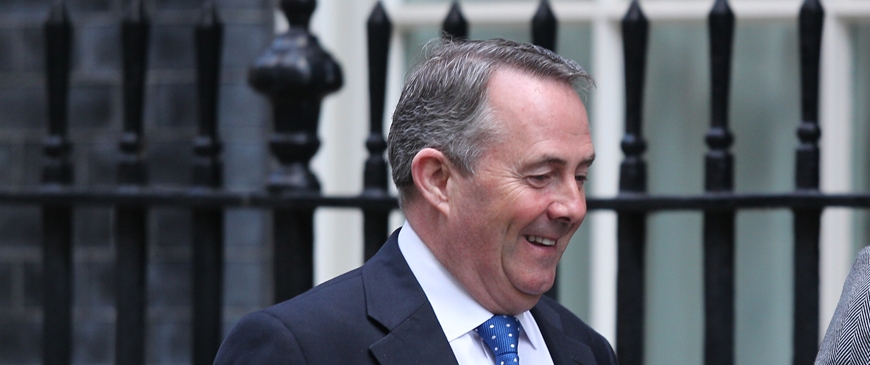
TPP: The UK is having a Pacific pipe dream
It’s easy to poke fun at Liam Fox’s Department for International Trade. With the UK unable to negotiate new trade agreements until it has left the European Union in 2019, and likely unable to implement any deals it does sign during the subsequent transition period until 2021 at the earliest, why does it exist?
This week it appears that, alongside travelling around the world proclaiming that the British are the saviours of global free trade, it’s for the department’s ministers to make headlines suggesting Britain could join the Trans-Pacific Partnership—that’s a plurilateral trade agreement currently being ironed out by 11 Pacific states including Canada, Japan and Vietnam. (It is distinct from the Transatlantic Trade and Investment Partnership, or TTIP, which is a proposed trade agreement between the EU and the United States).
Picking holes in the DIT’s proposal isn’t difficult. For one, unless we are planning on assigning far greater significance to the Pitcairn Islands (which form the last British overseas territory in the region) the UK is not a Pacific power, so the name of the trade deal would need to change. Second, joining TPP wouldn’t even come close to compensating for the losses of Brexit. Furthermore, it all appears a bit pointless when you consider that the EU already has trade agreements in place with six of the TPP countries (two awaiting ratification), and is well on course to finalise a deal with its biggest member: Japan.
Yet, you can understand the allure. Taking back control of trade policy was a key demand of those who advocated withdrawal from the EU, thus making the UK’s ability to strike new trade deals a barometer of Brexit’s success. And maybe, just maybe, if we were able to become a member of the biggest ongoing plurilateral trade negotiation in existence, the words “Global Britain” would no longer be used solely as a punchline.
But this brings me to the key question: has anyone bothered to ask whether the so-called Ocean’s Eleven would even want us in their club? Because they’ve got their own problems to deal with.
The TPP, beneath all the talk about benefits from increased trade liberisation, should be first and foremost understood as a geopolitical exercise. With the rise of China and its increasing influence over trading rules and standards, TPP was envisioned as a US-led counterweight to growing Chinese regional hegemony.
And then Donald Trump happened.
As an Obama era initiative—but also because of lingering xenophobia and increased hostility from the trade unions and the Republican base—it was perhaps inevitable that Trump chose to remove the US from the agreement. To many, this signaled TPP’s death knell.
However, in November 2017 the remaining eleven nations decided to keep the TPP alive, and rebrand it the Comprehensive and Progressive Trans-Pacific Partnership. Yet, there are still issues in need of resolution. Canada, under Justin Trudeau, wants increased freedom to force broadcasters to use local, largely French-language, content, and there is an ongoing disagreement over car rules, for example.
The TPP negotiations have dragged on for many years. And with the agreement battered and bruised, there is little reason to think the beleaguered 11 will be willing to extend a political favour to the UK, which has no skin in the regional game and differing geopolitical objectives vis-à-vis China, at least in the short-term. More to the point, they are absolutely not going to do this before knowing what the UK’s future trading relationship with the EU looks like. It would be a waste of their time and energy.
In the existing political climate you can never fully rule out an improbable event, such as the UK joining a version of the TPP in the far distant future (if it ever actually emerges). But for all the reasons above it seems highly unlikely. In the meantime the Department for International Trade has more pertinent things to worry about, what with the need to replicate all of the EU’s existing trade agreements by March 2019, re-establish the UK’s independent position at the World Trade Organisation and create the domestic institutional capacity necessary to run its own trade policy.
And if we are indeed to one day take to the seas in search of bounty we would be wise to rein in the bluster. It’s not all about us. The world has bigger things to deal with than Brexit. And it’s not out to do us a favour.
Sam Lowe is a research fellow at the Centre for European Reform.
